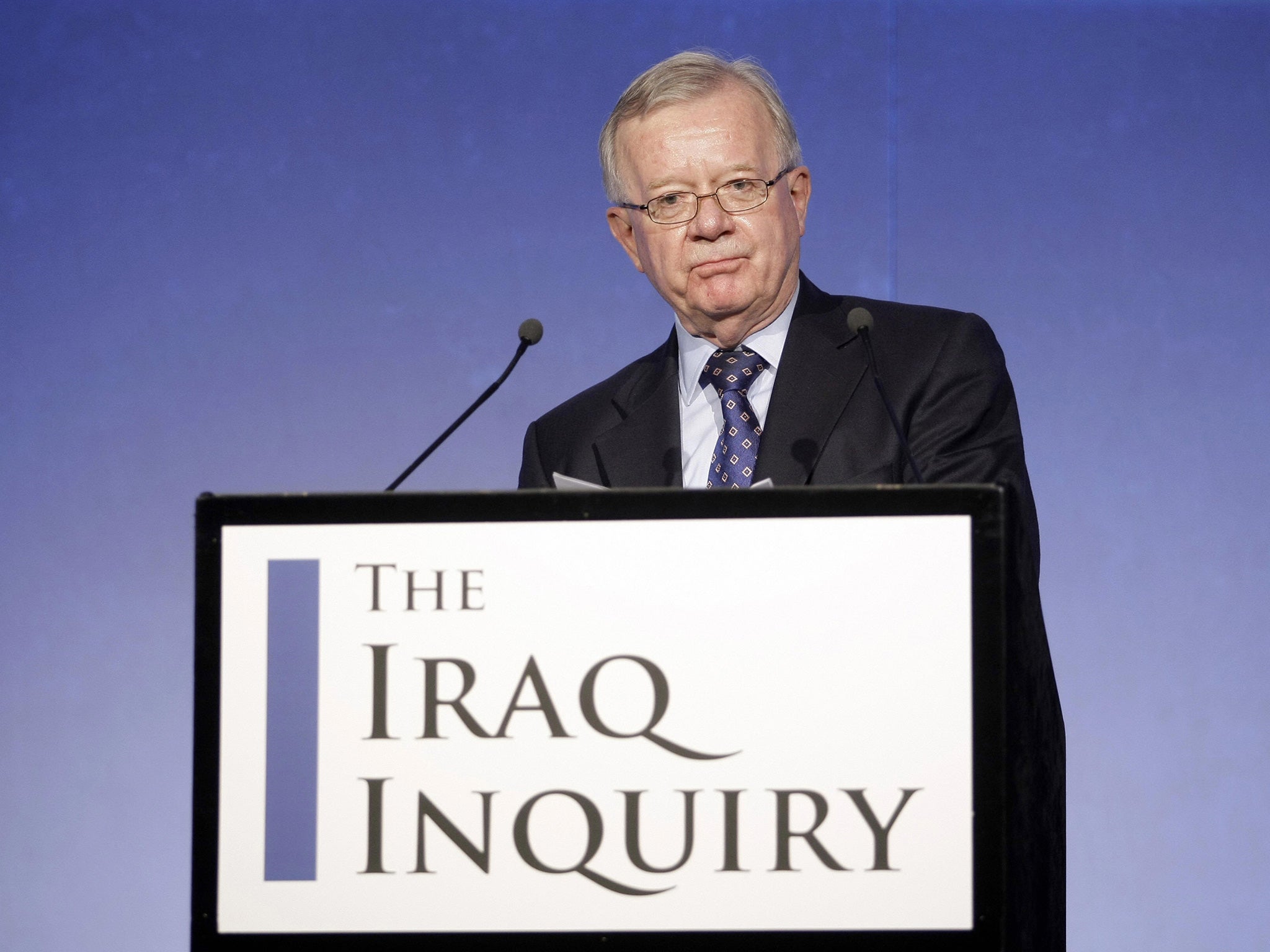Your support helps us to tell the story
From reproductive rights to climate change to Big Tech, The Independent is on the ground when the story is developing. Whether it's investigating the financials of Elon Musk's pro-Trump PAC or producing our latest documentary, 'The A Word', which shines a light on the American women fighting for reproductive rights, we know how important it is to parse out the facts from the messaging.
At such a critical moment in US history, we need reporters on the ground. Your donation allows us to keep sending journalists to speak to both sides of the story.
The Independent is trusted by Americans across the entire political spectrum. And unlike many other quality news outlets, we choose not to lock Americans out of our reporting and analysis with paywalls. We believe quality journalism should be available to everyone, paid for by those who can afford it.
Your support makes all the difference.The long awaited Chilcot Inquiry will release its findings later this summer, the inquiry's chair Sir John Chilcot has announced.
Here's what we know about the inquiry and its forthcoming report.
When will the Chilcot Report be released?
Sir John Chilcot announced on Monday that the Iraq Inquiry’s report would be released on 6 July 2016.
That date is two weeks after the European Union referendum, which is to be held on 23 June.
Sir John said the date had been agreed to give the inquiry time to proof-read and print the report.
What is it about?
The inquiry was set up by Gordon Brown in 2009 with what Sir John described as a “very broad” terms of reference.
The report will examine the period from Summer 2001 to the end of July 2009 “embracing the run-up to the conflict in Iraq, the military action and its aftermath”.
Specifically, it the inquiry will try to analyse “the way decisions were made and actions taken, to establish, as accurately as possible, what happened and to identify the lessons that can be learned”.
How long is it?
2.6 million words, which makes it well over four times as long as War and Peace and over three times as long as long as the King James Bible.
Why has it taken so long?
There are a variety of reasons. Firstly, it’s a big job: the inquiry interviewed 150 witnesses across 130 sessions of oral evidence. It analysed 150,000 government documents. It was always going to take a long time.
There were also unforeseen setbacks and other delays. Sir Martin Gilbert, one of those on the core inquiry team, died in 2015.
The inquiry has also followed the “Maxwellisation” convention whereby any person to be criticised in it is given a fair opportunity to comment on a draft prior to publication.
In this case, those people took months or years to respond in full. We do not have full answers as to why they took so long.
The latest several-month delay to the inquiry was also that it had to be vetted by the security and intelligence services in order to ensure it wasn’t leaking classified information.
Who is to be criticised in the report?
We don’t know for sure. The Guardian newspaper reported in October 2015 that the net of criticism for the war would be “cast far and wide”.
The newspaper said Tony Blair “knows full well” he will be criticised in the report.
Separately, in August of last year, The Times newspaper reported that chief of defence staff Sir Nicholas Houghton is expected to be criticised.

Join our commenting forum
Join thought-provoking conversations, follow other Independent readers and see their replies
Comments